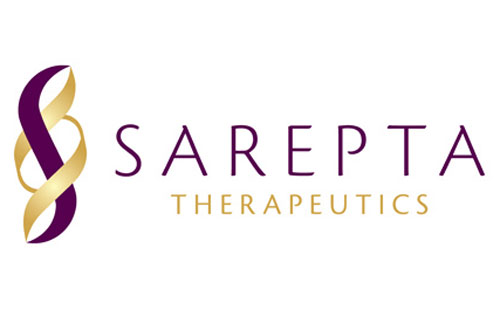 Sarepta’s gene therapy for Duchenne muscular dystrophy has produced stellar results in the first three patients treated in a clinical trial, raising hopes that it could halt or even reverse the muscle wasting disease.
Sarepta’s gene therapy for Duchenne muscular dystrophy has produced stellar results in the first three patients treated in a clinical trial, raising hopes that it could halt or even reverse the muscle wasting disease.
The data were reported during Sarepta’s R&D update yesterday and – by the end of the day – shares in the US biotech had risen by a third, having been up almost 60% at one point. Analysts at Leerink said the results were a ‘home run’ and way ahead of expectations, and positions Sarepta as a “leader in this field.”
DMD – a rare muscle-wasting disease that mostly affects boys and typically is fatal by age 30 – is caused by a defect in the gene coding for dystrophin, a protein found in muscles that is critical for movement.
The data from the three boys – who appeared at the R&D event to rousing applause – showed that Sarepta’s AAVrh74.MHCK7 gene therapy led to the production of a truncated form of dystrophin at a level 38% of normal – which may not seem that impressive at first glance but according to clinicians could have a dramatic impact on the disease.
Some studies have suggested that just 15% dystrophin expression is enough to prevent the contraction-induced muscle injury that characterises DMD. It remains to be seen however whether, as suggested by Sarepta’s earlier research, the truncated ‘micro’ dystrophin has similar functionality to the regular protein and the biomarker data will translate into clinical benefits down the line.
There was another encouraging data read-out from the first three subjects, namely a significant 87% decrease in levels of serum creatine kinase (CK), an enzyme biomarker strongly associated with muscle damage, 60 days after treatment. Lead investigator Jerry Mendell of Nationwide Children’s Hospital in Columbus, Ohio, indicated that the micro-dystrophin is protecting the muscle fibres.
“I have been waiting my entire 49-year career to find a therapy that dramatically reduces CK levels and creates significant levels of dystrophin,” said Mendell. “Although the data are early and preliminary, these results, if they persist and are confirmed in additional patients, will represent an unprecedented advancement in the treatment of DMD.”
Sarepta is now enlarging the study and talking to the FDA about what would be required to file for approval of AAVrh74.MHCK7. it’s already a player in DMD therapy with its exon-skipping Exondys 51 (eteplirsen) therapy – approved in the US but not the Europe – but that drug is only suitable for around 15% of DMD patients and has to be administered continually to exert its effects.
Medical charity Duchenne UK’s co-founder Alex Johnson said that the headline results from the trial were “amazing…and better than I had even dared to dream of.” He sounded a note of caution however, assuming the trial continues to be positive and Sarepta’s candidate makes it through to regulatory approval.
“We have finally got what looks to be from this preliminary data an effective treatment dangling before us and I am now sat here wondering how we get this treatment to the whole community,” writes Johnson in a blog post.
“The list of challenges we will face in getting these drugs to whole community is huge. There’s going to be a lot of hard work and no doubt blood, sweat and tears ahead.”
Sarepta’s experimental treatment one of a clutch of DMD gene therapies in clinical testing along with candidates from Sangamo, Bamboo/Pfizer, and Solid Biosciences.




